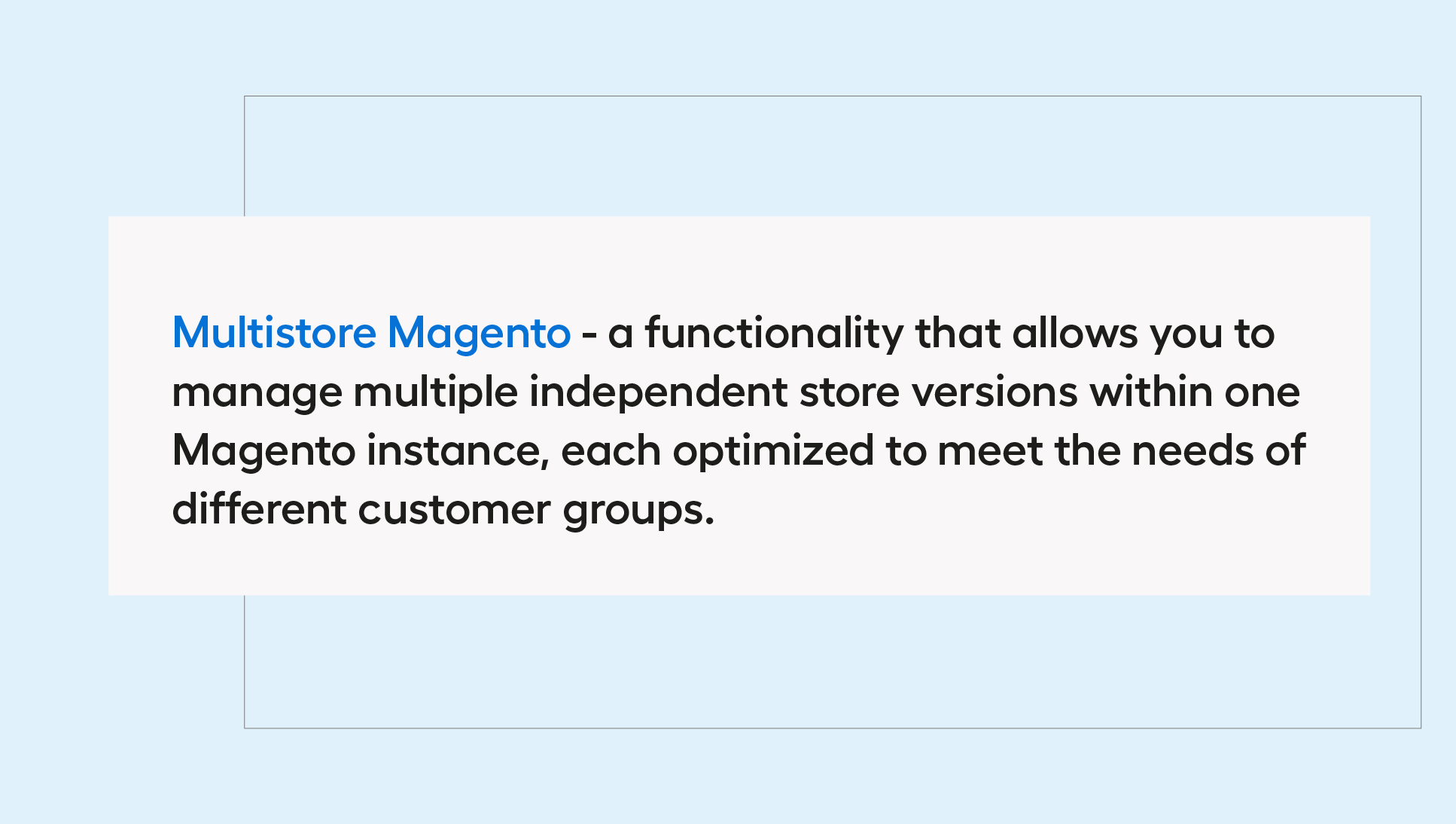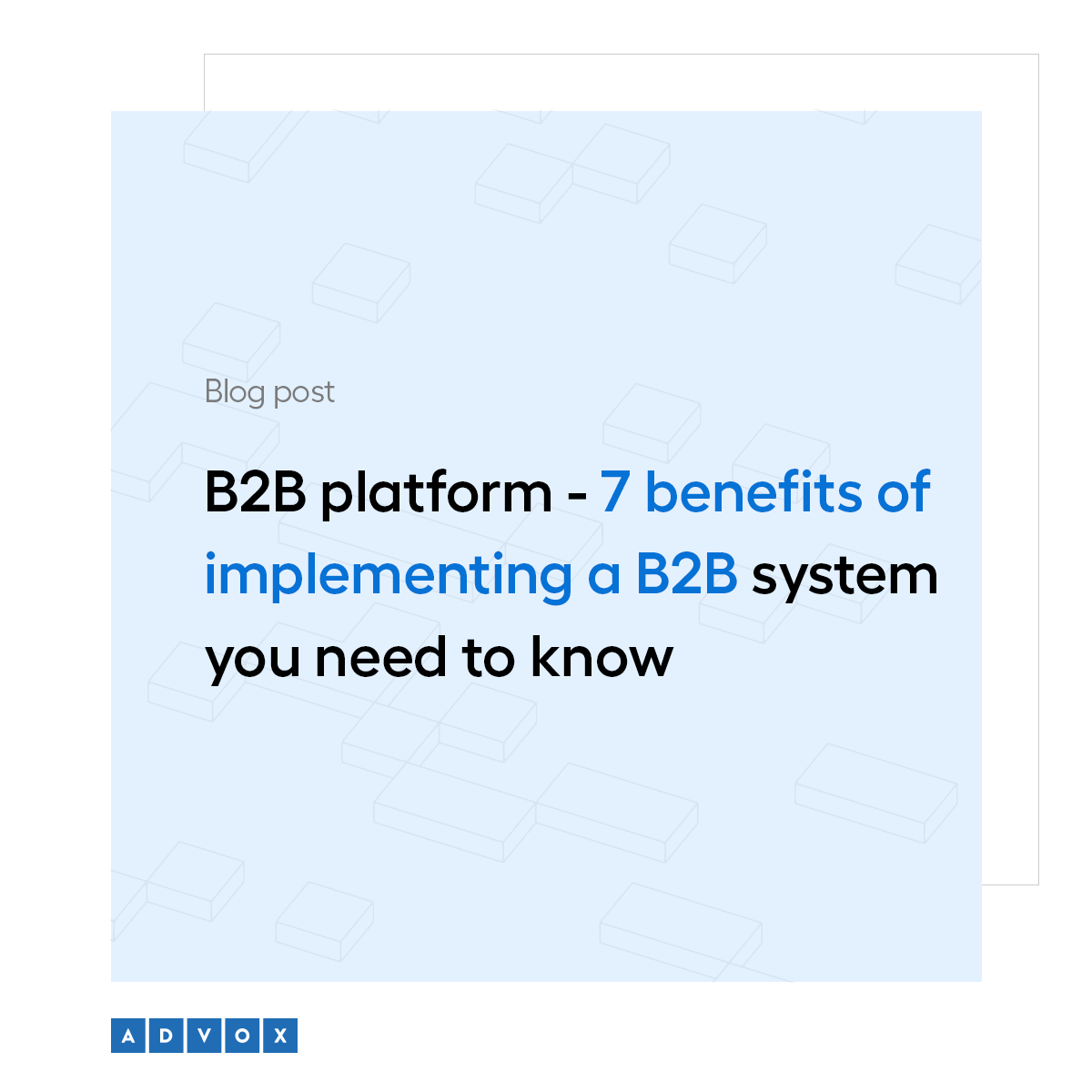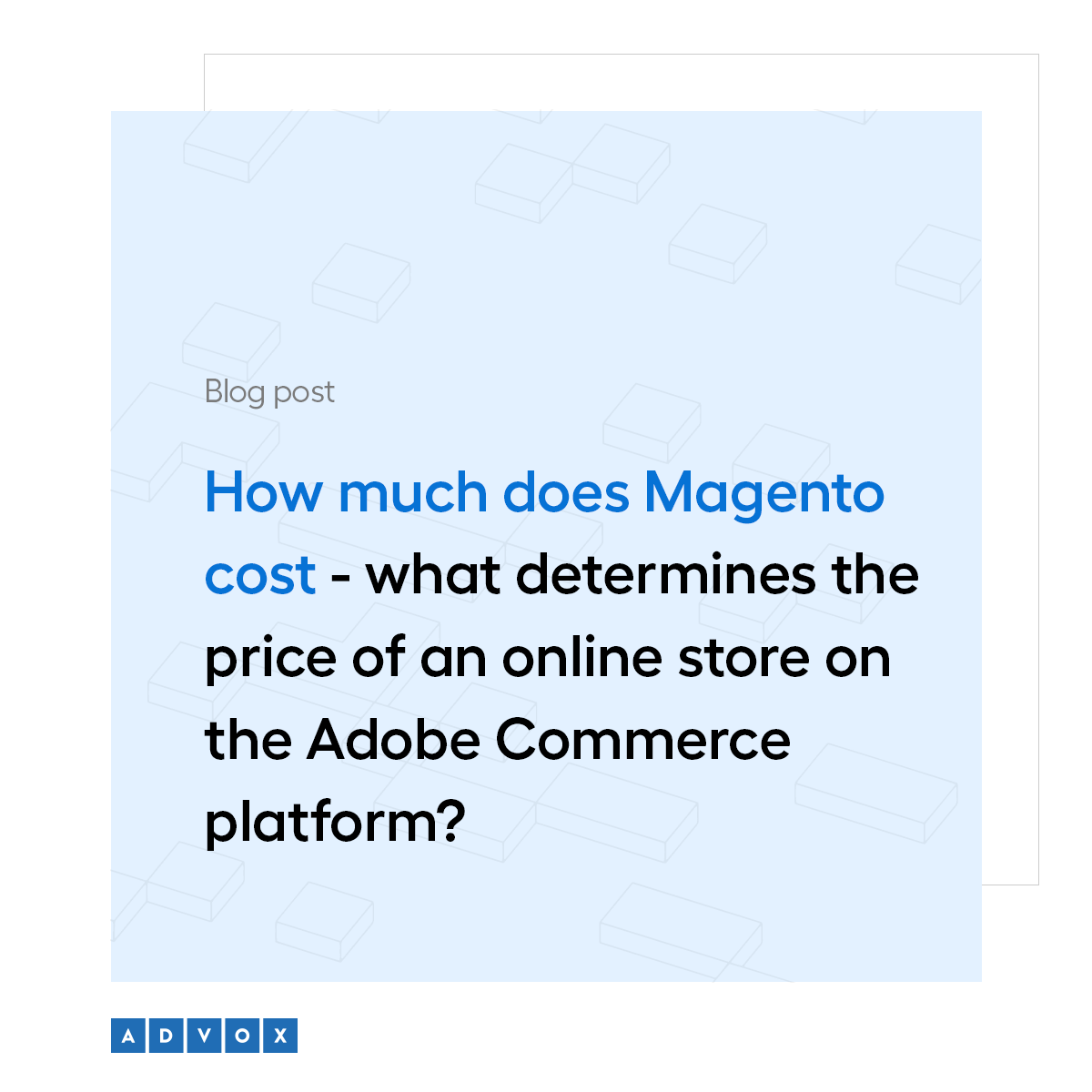Table of contents:
- eCommerce B2B vs B2C - two different worlds or the same game?
- Can I sell to both B2B and B2C through a single store?
- Magento Multistore – perfect for B2B and B2C sales
- Why choose Magento Multistore? Benefits of implementation
- eCommerce for B2B and B2C – You Don’t Have to Choo
Stable relationships with partners, regular orders, and the trust of business clients—it might seem like these are all you need to succeed in the B2B sector. However, that’s not entirely the case. According to a report by BigCommerce, 90% of global B2B buyers now expect online shopping experiences that mirror the ease and convenience of B2C websites. So how can you meet these expectations while catering to the diverse requirements of both business and individual customers?
The answer could be Magento Multistore - a platform that enables you to create dedicated store versions within a single system. In this article, you'll learn how Multistore effectively bridges the needs of B2B and B2C customers, offering flexibility, personalization, and simplified management. See how one tool can revolutionize your online sales!
eCommerce B2B vs B2C - two different worlds or the same game?
There used to be a clear line separating B2B and B2C relationships, with entirely different approaches for each model. Business to business (B2B) relationships traditionally focused on long-term contracts with business partners, negotiations, and complex decision-making processes. In contrast, business to consumer (B2C) relationships centered on building quick and emotional connections with individual customers, emphasizing intuitive and straightforward purchasing experiences.
Over the years, however, the boundaries between these two models have begun to blur, largely due to the rise of online sales. Trends initially developed in the B2C sector have increasingly influenced B2B. A prime example is the omnichannel approach—a strategy that integrates multiple sales and communication channels into a unified ecosystem.
Despite these shifts, key differences inherent to the B2B sector remain critical when designing online sales strategies. These include:
- Complex decision-making process - purchasing decisions in B2B often involve multiple stakeholders or entire teams, requiring more time and negotiations.
- Repeat orders - B2B orders are often regular and predictable, enabling the automation of purchasing processes (unlike consumer purchases, which are often one-off and driven by emotions).
- Payment systems and discounts - B2B features flexible payment models, such as invoicing with deferred payment terms, and discount systems tied to wholesale order volumes.
- Transaction scale - in the B2B space, transactions typically involve much larger volumes and higher values.
All these elements need to be considered on a sales platform, which means that B2C eCommerce cannot be directly applied to a B2B portal. A B2B platform must be designed with more complex processes in mind, offering a broader range of functions tailored to the specific needs of business clients and integrating seamlessly with enterprise management systems.
Can I sell to both B2B and B2C through a single store?
Selling to both B2B and B2C on the same platform might seem appealing—it promises lower implementation and eCommerce management costs. However, in practice, this approach can be risky. More often than not, it turns out to be ineffective since each model has its unique requirements that are hard to meet within a single, unified architecture. A practical compromise that ensures efficiency in both segments is the Multistore functionality offered by Magento 2. So, what does it entail?
Magento Multistore enables the creation of multiple, virtually autonomous store versions within a single Magento instance—each tailored to a different customer segment. Every store version can have its own structure and dedicated features, all managed from a single administrative panel. The biggest advantage of Multistore is its ability to efficiently manage multiple stores from one place. This eliminates the need to build separate platforms for each sales model, saving both time and resources.

Magento Multistore – perfect for B2B and B2C sales
The flexibility of Magento Multistore is widely leveraged by online businesses. The basic version of a store can be expanded in numerous ways. Beyond serving B2B and B2C markets, many stores use Multistore to grow their business with international store versions or dedicated product offers for specific customer segments. According to Magento documentation, a single instance of the platform can support up to 50 different store views, providing immense growth opportunities.
Depending on the type of store you want to create, you can customize key elements such as:
- Product catalogue - each store can feature a unique product set, pricing, and descriptions tailored to the needs of specific customer groups.
- Branding - Multistore allows for different graphic themes and layouts for each store, ensuring user-friendly designs.
- Domains - each store can operate under a unique domain, simplifying localization and visibility in search engines.
- Functionalities - implement different extensions based on store needs, such as advanced product configuration tools for B2B.
- Payment and delivery methods - configure distinct options, such as invoice payments for B2B or logistics options for B2C.
Why choose Magento Multistore? Benefits of implementation
Customizing your store to meet customer needs is a fundamental benefit of Magento Multistore, but it’s not the only one. Why else should you consider this solution for managing B2B and B2C sales online?
- Time and resource savings - with a single Magento instance, you can manage multiple stores from one administrative panel, significantly simplifying operations and reducing costs.
- Offer personalization - create dedicated store versions for different segments, boosting engagement and conversions.
- Scalability - easily expand with new stores, ideal for entering new markets or targeting new customer groups.
- Simplified management - centralize key operations, such as product management and order fulfillment, to optimize processes.
Magento Multistore is a solution that delivers not only flexibility and scalability but also significant business process optimization. By centralizing the management of multiple stores into a single administrative panel, businesses can efficiently coordinate operations, saving time and resources. This leads to better customer targeting, higher conversion rates, and streamlined management of the entire online sales ecosystem.
eCommerce for B2B and B2C – You Don’t Have to Choose
Each type of sales model requires a tailored approach that addresses the unique needs of business and individual customers. Magento Multistore makes it possible to meet these expectations by offering tools to create dedicated store versions that precisely cater to diverse requirements.
For B2B sales, Magento Multistore provides advanced functionalities like individualized pricing, custom product catalogs, and flexible payment methods. For B2C, it enables the creation of engaging shopping experiences with intuitive interfaces and personalized offerings. At the same time, centralized management in a single panel simplifies operations, reduces costs, and supports expansion into new markets. Do you feel that Magento Multistore might be the solution for you? Contact us, and we’ll handle your project, tailoring it to your specific needs!







